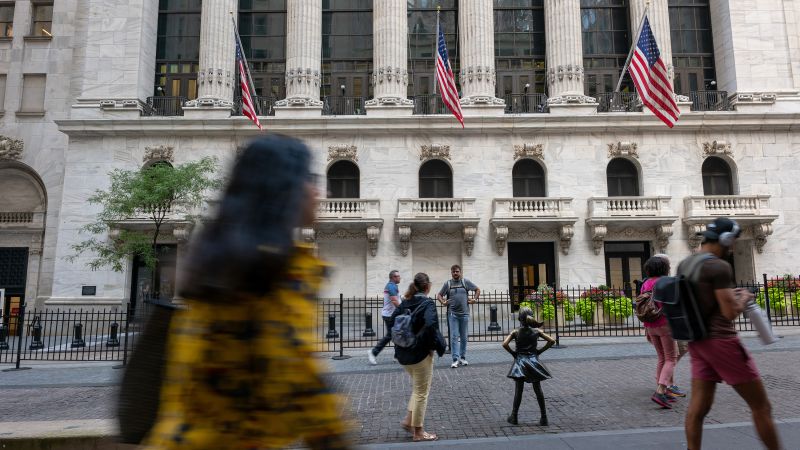The US job market remains strong, with 254,000 jobs added in September, surpassing expectations and lowering the unemployment rate to 4.1%. Following the Federal Reserve’s interest rate cut last month, traders are now betting on a quarter-point cut in November to keep the job market stable. Some investors believe that the strong labor market could make it difficult for inflation to continue cooling, as consumer spending drives up the cost of goods and services.
Investors are closely monitoring inflation indicators, with reports on the Consumer Price Index and wholesale inflation due this week. Recent inflation data has been positive, with the Personal Consumption Expenditures price index showing a 2.2% rise for the 12 months ending in August. Consumer inflation has eased to its slowest pace since February 2021, indicating a trend of cooling down in recent months. Following the strong September labor data, there are concerns that inflation may become a focus for the Federal Reserve once again.
Stocks have rallied at the beginning of the fourth quarter, following a volatile start to October due to escalating conflict between Israel and Iran. The strong jobs report helped the three major indexes achieve a weekly gain after notching their best performance in the first nine months of the year since 1977. While oil prices are currently lower than last year’s highs, analysts warn that a further escalation in the Middle East conflict could lead to an increase in energy costs and subsequently inflation.
Investors are relieved as the International Longshoremen’s Association returned to work, ending a three-day strike that could have disrupted supply chains and caused shortages of consumer goods. The resolution of the strike alleviated concerns among investors, who were worried about the potential impact on the economy. Despite the recent positive economic data, there are still risks related to inflation and international conflicts that could impact market performance.
With the Federal Reserve focusing on maintaining a steady job market, investors are now turning their attention to inflation trends to gauge the future direction of monetary policy. The strong jobs report has raised concerns about inflation picking up, leading some to believe that the Fed may have to once again prioritize inflation control. As markets await the upcoming inflation reports, there is uncertainty about how inflation will behave in the coming months and what impact it may have on monetary policy decisions.













